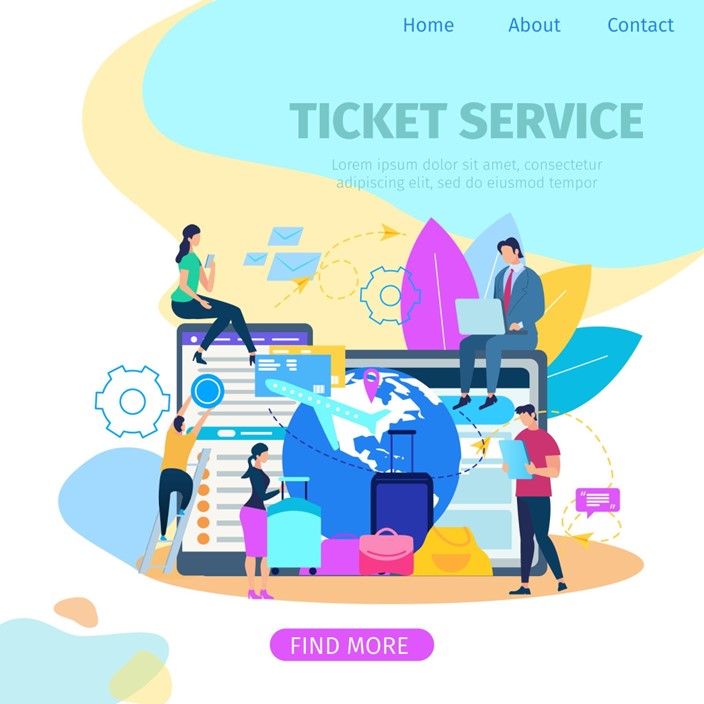Organizing events, whether large-scale conferences or small gatherings, requires strategic planning, precision, and the ability to adapt to shifting demands. As technology advances, intelligent event management platforms have become essential tools for driving efficiency and success. These platforms streamline operations, improve attendee experiences, and ensure that every detail aligns with the event’s goals.
With the right tools, businesses and organizers can take events to the next level, achieving both operational excellence and measurable outcomes.
Simplifying Event Planning with Intelligent Tools
Event planning has traditionally been a time-intensive process, filled with logistical challenges, manual coordination, and unexpected hurdles. Intelligent platforms are changing this dynamic by automating critical tasks such as registrations, communication, scheduling, and data management. These tools ensure that organizers can focus on strategy rather than getting bogged down by repetitive tasks.
Platforms powered by artificial intelligence and automation provide event planners with real-time insights to make informed decisions. For instance, tools like Grata help streamline sourcing and partnerships by offering AI-powered research solutions. Such technology enables planners to identify ideal vendors, collaborators, and venues quickly, cutting down hours of manual research.
Automation also reduces the risks of human error in areas like ticketing, attendee check-ins, and data collection. Tasks that once required manual input can now be completed with a few clicks, ensuring accuracy and efficiency at every stage of the planning process.
Enhancing Attendee Experience with Seamless Solutions
Creating a memorable and smooth experience for event attendees is essential for ensuring satisfaction and long-term engagement. Modern event platforms make it possible to deliver a seamless experience, from the moment participants register to the conclusion of the event. Technology streamlines processes, reduces stress, and allows attendees to focus on what matters most: enjoying and benefiting from the event.
Simplified Registration and Access
Attendees value convenience, especially during the early stages of an event. Intelligent platforms allow for quick and user-friendly registration processes that can be completed online within minutes. Integrating tools like museum ticketing software for cultural events or similar systems for conferences ensures attendees receive instant access to tickets and information. QR codes, digital passes, and email confirmations eliminate confusion and lengthy wait times at entry points.
Personalized Schedules and Real-Time Updates
Tailored experiences help attendees make the most of their time. Platforms provide tools that allow participants to create personalized schedules, select preferred sessions, and receive real-time updates about events. Push notifications ensure they are always informed about schedule changes or key activities, enhancing convenience and engagement.
Interactive Engagement Tools
Technology enhances audience interaction during events with features such as live Q&A sessions, polls, and networking tools. These interactive options encourage attendees to engage with speakers, fellow participants, and exhibitors, adding value to their overall experience. Mobile apps and integrated communication systems make these interactions effortless and accessible.
Seamless event solutions not only improve attendee satisfaction but also leave a lasting impression. By focusing on simplicity, personalization, and interaction, event platforms transform ordinary events into exceptional experiences, ensuring participants feel valued and connected.
Leveraging Data for Measurable Success
Data has become a cornerstone of modern event planning. Intelligent event management platforms offer powerful analytics tools that track and measure key performance indicators (KPIs) to assess success. These platforms collect data on registrations, attendee engagement, ticket sales, and session participation, helping organizers identify areas for improvement and growth.
Real-time reporting ensures that planners have immediate access to critical information, allowing them to make quick adjustments during the event itself. For example, if certain sessions show lower attendance, organizers can promote them through targeted notifications to improve participation. Post-event analytics further provide insights into audience behavior, preferences, and overall satisfaction.
This data-driven approach allows businesses to demonstrate measurable return on investment (ROI) for their events. Understanding what worked well and what needs refinement ensures that future events are more impactful, cost-effective, and aligned with organizational goals.
Streamlining Communication and Collaboration
Collaboration between teams, vendors, and attendees is crucial to the success of any event. Event management platforms centralize communication, ensuring that all stakeholders remain connected and informed throughout the planning process. These tools integrate email communication, messaging systems, and task management features, reducing the chances of miscommunication or delays.
For larger events, platforms allow organizers to delegate tasks, track progress, and set deadlines efficiently. The transparency provided by centralized communication tools ensures that teams stay on the same page and can address challenges proactively. This streamlined coordination improves both pre-event planning and on-the-day execution, creating a polished and professional experience for all participants.
Reducing Costs and Increasing Efficiency
Intelligent event management tools also provide a cost-effective solution for businesses looking to maximize their budgets. By automating processes like ticketing, reporting, and marketing, these platforms reduce the need for manual labor and lower administrative costs. The real-time insights offered by analytics further help planners allocate resources more effectively, ensuring that funds are spent where they deliver the most impact.
Additionally, online platforms make marketing campaigns easier to execute and measure. Integrating features like social media promotion, email outreach, and targeted advertising enables organizers to reach the right audience without overspending. This level of precision ensures that events attract high-quality participants while remaining within budget constraints.
Preparing for the Future of Event Management
The future of event management lies in innovation and adaptability. As technology continues to evolve, intelligent platforms will introduce even more sophisticated solutions to meet the growing demands of planners and attendees. Artificial intelligence, virtual reality, and data-driven personalization will become integral components of events, offering immersive experiences that redefine attendee engagement.
Businesses and organizers who adopt these tools will be better positioned to lead in their industries. By leveraging the capabilities of intelligent event management platforms, they can create seamless, data-driven, and impactful events that achieve strategic goals and leave lasting impressions on attendees.
Conclusion
The integration of intelligent event management platforms has transformed the way businesses plan, execute, and measure events. By automating tasks, improving attendee experiences, and leveraging data for decision-making, these tools allow organizers to focus on delivering value and driving success. Solutions like Grata exemplify how technology streamlines processes, enabling planners to work efficiently and achieve exceptional results.
With the ability to adapt, innovate, and maximize resources, event management platforms are essential for businesses looking to elevate their events and stay ahead in an increasingly competitive market. Embracing these tools paves the way for growth, impact, and long-term success.








